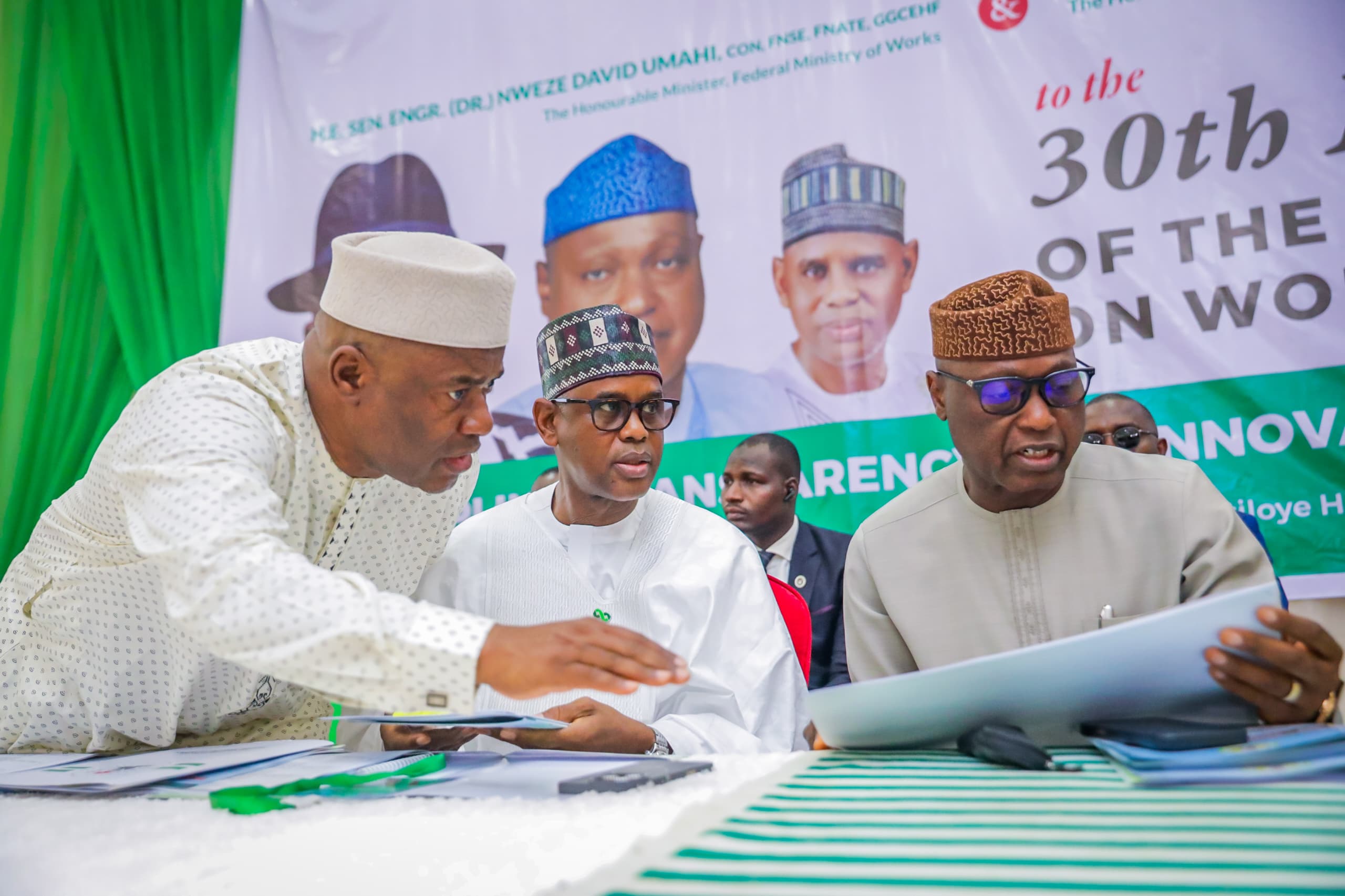Copyright newtelegraphng

The Federal Government has reaffirmed its commitment to transparency, discipline, and innovation in Nigeria’s engineering and infrastructure development. The Minister of Works, Senator (Engr.) David Nweze Umahi, who gave the assurance on Thursday, said the Federal Government remains determined to strengthen procurement reforms in line with the Public Procurement Act, ensuring open and competitive bidding, public access to project details, and collaboration with anti-corruption agencies to investigate and sanction infractions. “We believe that when transparency is institutionalised, trust is built, value is delivered, and lives are improved,” Umahi said. Represented by the Minister of State for Works, Bello Muhammad Goroyon, Umahi spoke at the 30th National Council on Works (NCW) held in Ado-Ekiti, the Ekiti State capital. The event, themed “Discipline, Transparency, and Innovation in Engineering Practice,” was described as timely and aligned with Nigeria’s development goals. He commended the Ekiti State Governor, Biodun Oyebanji, and the people of the state for hosting the meeting, noting that the Council provides a vital platform for shaping policies and strategies that drive national infrastructure development. The Minister disclosed that the Federal Government is exploring partnerships with the private sector and international organisations to introduce advanced technologies such as smart road infrastructure, drone mapping, and AI-assisted project planning. He charged regulatory bodies, including the Council for the Regulation of Engineering in Nigeria (COREN) and the Nigerian Society of Engineers (NSE), to continue upholding professional standards, promoting continuous training, and enforcing discipline within the profession. “We must be champions of transparency and advocates of innovation—not only in words but in action,” he said. Umahi further urged engineers and stakeholders to promote accountability, invest in modern technologies, and rigorously monitor projects in the interest of national development. “Infrastructure is more than concrete and steel—it is the backbone of economic growth, the link between communities, and the hope of millions of Nigerians,” he added. In his remarks, Governor Biodun Oyebanji reaffirmed his administration’s commitment to advancing infrastructure and promoting innovation in engineering practice to drive sustainable development in Ekiti State. He described engineers as the backbone of national progress, contributing significantly to economic growth through the design and construction of critical infrastructure such as roads, bridges, and public buildings. “In Ekiti State, we are harnessing the power of engineering to drive economic growth. Improving infrastructure is essential to unlocking our future potential and creating opportunities for generations to come,” Oyebanji said. The Governor commended President Bola Ahmed Tinubu for supporting infrastructure development in Ekiti, particularly through interventions on key federal roads. He assured that his administration would continue to create an enabling environment that supports innovation, investment, and growth in the engineering sector. Earlier in his welcome address, Commissioner for Works, Adesola Adebayo, noted that the state government has demonstrated strong commitment to infrastructural excellence by prioritising road rehabilitation and construction projects across urban and rural communities to enhance accessibility and economic inclusiveness. Adebayo expressed confidence that deliberations at the Council would yield actionable resolutions to strengthen collaboration between the federal and state governments, improve funding mechanisms, and promote the use of modern technologies and indigenous materials in construction.



